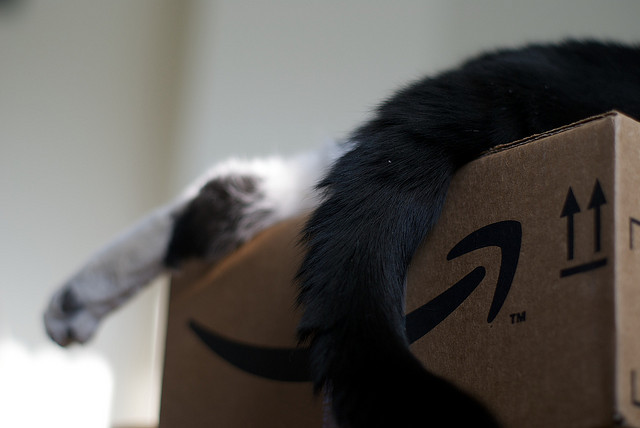In the last few months, retail giant Amazon has been making secretive moves in the air and sea freight sectors, trialling air freight deliveries and applying for ocean freight licenses. The press has been abuzz with speculation as to what the company’s intentions could be.
What does their activity indicate? Is it simply a back-up because they want to mitigate the failures of third-party couriers like UPS and FedEx, who in the last few years have struggled to cope with high, last-minute Christmas demand? Or is the company setting up shop for a more ambitious venture—to become a rival company in the air and sea freight sectors?
Unpacking the evidence
So what have Amazon been up to, exactly? In late November 2015, Kari Paul at Vice Motherboard speculated that Amazon were running a secretive air cargo operation out of Wilmington, Ohio, in the US.
A contractor called the Air Transport Services Group, which owns a fleet of Boeing 767s, was trialling flights out of what had been a DHL Express hub until its closure in 2009. The contractor was unable to confirm whether or not their customer was Amazon due to a non-disclosure agreement, but VICE’s multiple sources suggested that it was.

Amazon's freight operation: Is the cat out of the box?
A month later, it was revealed that Amazon had been in negotiations with air cargo companies to lease up to 25 aircraft from multiple companies including the Air Transport Services Group. It then turned out that they had also been trialling air cargo to and from the UK—the Evening Standard reported that a Boeing 737 had made five trips a week over six weeks, between locations near some of Amazon’s biggest warehouses across Europe.
Then last week came another surprise: a subsidiary of Amazon China, named the Beijing Century Joyo Courier Service, has applied for a license to operate as a non-vessel operating common carrier (NVOCC), which allows the company to provide third-party logistics services—essentially permitting them to become a freight forwarder.
Most recently, it’s been revealed that Amazon are set to acquire the remaining 75% of French package delivery company Colis Privé, of which they currently own a 25% share.
A license to sell
When the initial news broke of Amazon’s ventures into air freight, one much-discussed possibility was that Amazon was simply seeking more security, after carriers such as FedEx and UPS struggled to cope with shipping demand during peak seasons. Like many other businesses, Amazon had to deal with the fallout in 2013 when a surge in last-minute online shopping left couriers unable to make good on their promises, leading to delays and angry customers.
Things have improved in the years since, but they are not ideal. It would make sense for Amazon to want to supplement the services of third-party carriers with their own, to ensure that the same thing doesn’t happen again—or even to ease themselves free of dependence on these companies entirely.

So what are Amazon up to? Only time will tail.
But as Air Cargo News has pointed out, the NVOCC application suggests that there’s more to Amazon’s experiments than supplementary freight services. Applying for an NVOCC in particular is not the obvious route to take if all Amazon wanted was extra space to cover peak season shortages—the application indicates that Amazon intends to sell transport services to third parties.
It’s still anyone’s guess what Amazon are up to, but all signs seem to point to Amazon setting up their own freight or freight forwarding services.
Keep your eye on our air and sea freight news—and we'll keep you posted.
(Image credit: formatc1 on Flickr.)



On social media? Why not give us a follow...